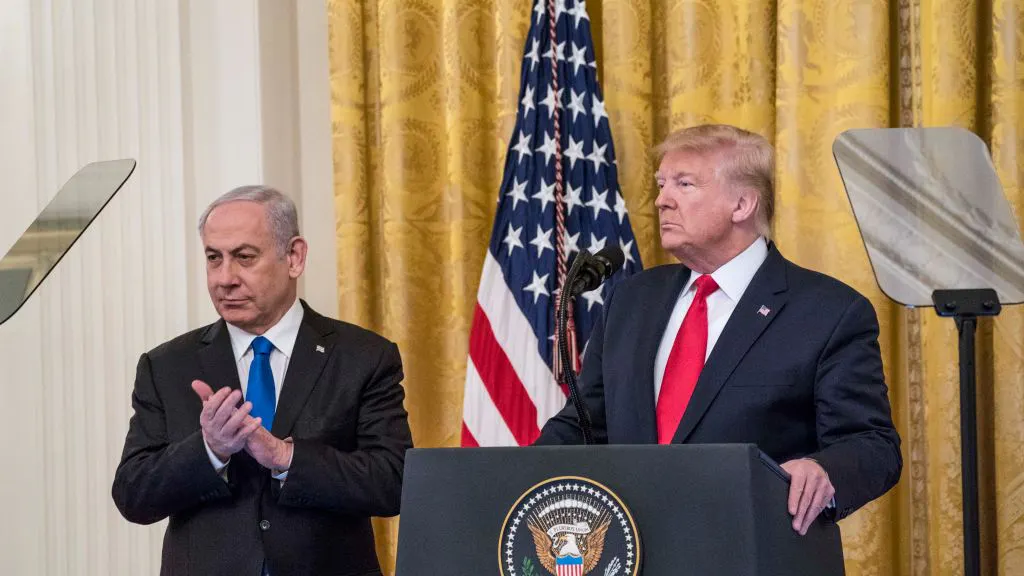It takes time for attitudes to change, and changing attitudes in the Middle East is a tough proposition. Moving the Europeans may prove harder.
An Israeli general once told this story (I was there):
The Israeli general commanded a unit that crossed the Suez Canal in 1973 after repulsing Egypt’s surprise Yom Kippur War attack. In his headquarters, he received a message that purported to be from an Egyptian general, telling him to come — alone — in a jeep to a certain spot in the desert and “hear something.” The general told the group, “I was sure I was going to die, but I did it.” The Egyptian proved to be the chief of the Egyptian general staff and he, too, was alone.
The Egyptian said, “The war is over.”
The Israeli general said, “Yes. I know.”
The Egyptian general sighed, “Not this war. In 1948, Egypt was within 11 miles of Tel Aviv and you pushed us back. In 1956, you drove through Sinai — but it wasn’t fair because you had the French and the British. In 1967, you did it again — by yourselves. Now you have crossed the Suez Canal and are 99 kilometers from Cairo. I’m here to tell you that you won’t get any closer. The war is over.”
He got back in his jeep and left.
The Israeli returned to his headquarters and told the story to the general staff in Tel Aviv. “No one believed me,” the Israeli said.
But it was true. The Egyptian government had determined that fighting, losing, and regrouping was not a plan. In 1979, Anwar Sadat went to Jerusalem, and in so doing met Israel’s primary condition for peace — recognition of Israel as a legitimate and permanent state in the region, entitled to “secure and recognized boundaries, free from threats or acts of force” (the language of U.N. Security Council Resolution 242). Today, Egypt and Israel cooperate on energy, security (including for the Gaza Strip), and trade.
In the broader Arab world, it is taking longer. Unable to countenance Jewish sovereignty in the region, the Arabs went to war in 1948 to erase it. They failed. They tried again in 1967. They failed again. After that war, an Arab League Summit convened in Sudan and issued what became known as the Khartoum Resolution: “No peace with Israel, no recognition of Israel, no negotiations with Israel.”
Then there were the conflicts of 1973 and 1982, intifadas, and rocket wars with Gaza.
President Trump called them on it in announcing his “Vision” for the Middle East. “It is time for the Muslim world to fix the mistake it made in 1948, when it chose to attack instead of to recognize the new state of Israel. The Palestinians are the primary pawn in this adventurism, and it is time for this sad chapter in history to end.” Three Arab ambassadors were in the room.
The Arab League hastily convened a summit, responding to the flat rejection of the plan by Palestinian Authority strongman Mahmoud Abbas, who had declined to read or even discuss it. This was not a “three noes” meeting. While the bloc as a whole rejected the Vision, the head of the Arab League said that there was time only for an initial study of the plan, adding that the Palestinian response would be key in shaping a “collective Arab position.” It should be noted that a day after announcing it would scrap security cooperation with the U.S. and Israel, the Palestinian Authority announced that, in fact, it would not do so.
Al Jazeera wrote, “The announcement of Trump’s plan drew mixed responses from Arab states.” While joining in the vote, Egypt and Saudi Arabia said separately that they “appreciated” Mr. Trump’s efforts and called for renewed negotiations. Sudan’s leader announced a “principled stance on the Palestinian issue and the right of its people to establish its independent state … in accordance with the Arab consensus and Arab League decisions,” even as in a bit of irony — having hosted the Khartoum Declaration meeting — it established a mechanism for opening diplomatic relations with Israel.
OK, yes, the International Union of Muslim Scholars (IUMS) consigned the Vision to the “dust heap of history,” but the IUMS is a creation of Qatar and Qatar is a puppet of Iran.
And speaking of Iran, European Union (EU) foreign policy chief Josip Borrell met with Iranian leaders and shortly afterward tried to ram a condemnation of the Vision though the EU. But EU statements have to be unanimous and, of its 27 countries, six refused — including Italy, Austria, Hungary, and the Czech Republic. Borrell then issued the statement in his own name.
The interim commissioner-general of UNRWA said, “The plan … is extremely unsettling for the Palestine refugees living under occupation, under blockade and through conflict after conflict and crisis after crisis, hoping for justice and human rights. The international community must send a clear message to Palestine refugees and to the world at large that the international community stands firmly behind them.”
Rightly, Israel chose to respond more harshly to the EU and UNRWA than it did the Arab League.
It has been hard for Arab states to move on from decades of adamant rejection of Israel to talk and trade, and generally accept the nation-state of the Jewish people. That is the reality, not an excuse. But for the EU and UNRWA, to encourage Palestinians in outmoded, fanatical, and dangerous thinking is inexplicable.
Except it isn’t.
Shoshana Bryen is Senior Director of The Jewish Policy Center in Washington, and Editor of inFOCUS Quarterly.

.png)
.png)

